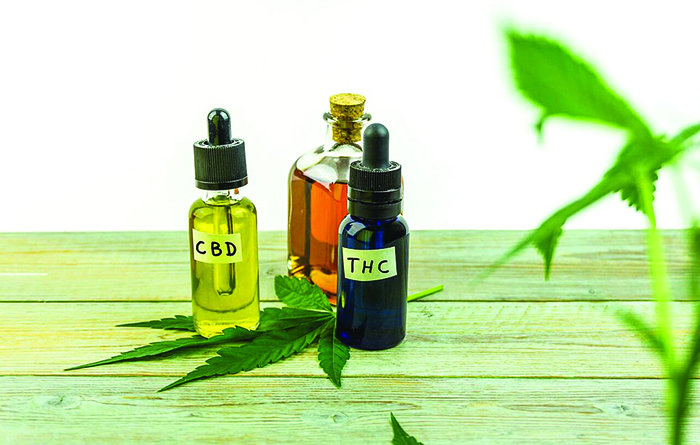The FDA has decided that folks like Majorie Taylor Greene and Matt Gaetz are better suited to regulate cannabidiol
The legalization of hemp in the 2018 Farm Bill created vast new opportunities for fly-by-night hucksters across the land. Hemp-derived CBD products started showing up next to cash registers at gas stations and trendy clothing shops.
Many of those products are dubious at best. Some bear handwritten labels that give no indication of what the products actually contain. Testing has shown that many of them contain very little CBD, if any at all. Some contain potentially dangerous contaminants, or might have more THC (the part of the cannabis plant that gets one high) than is legally allowed.
Slightly less skeevily, CBD products sold at health food shops and drugstores are a lot like the vast panoply of dietary supplements of iffy legitimacy that line the shelves at such places. They are more likely to contain what their labels say they contain, and to be free of contaminants, but they are still mostly unregulated.
CBD (cannabidiol) is a component of the cannabis plant (a category that includes hemp) that doesn’t cause a high, but has shown varying degrees of promise as a palliative for ailments including pain, nausea, insomnia, anxiety and many others. Consumers considering using CBD have been left confused, and put at risk, by the lack of standards and regulation.
Because of all this, health advocates and companies working in the legitimate CBD industry have for years begged the Food and Drug Administration to create rules for the market. Those legit operators are being undercut by the marginal characters who are taking advantage of all the public confusion.
Last month, the FDA, after nearly five years of dithering, essentially abandoned its mission, calling on Congress to deal with regulating the CBD market. The reason, according to a statement from Janet Woodcock, the deputy commissioner in charge of the years-long inquiry, is that CBD can’t be regulated as a dietary supplement because “existing regulatory frameworks” are “not appropriate” for it. So, Woodcock wrote, the FDA is “prepared to work with Congress on this matter.”
In other words, the agency charged with regulating what drugs and supplements are safe to consume has decided that folks like Majorie Taylor Greene and Matt Gaetz are better suited to the job in this case. The reasoning is basically that not enough is known about CBD and its potential harms. The FDA has “not found adequate evidence to determine how much CBD can be consumed, and for how long, before causing harm,” Woodcock wrote.
Late last week, the Substance Abuse and Mental Health Services Administration (SAMHSA) warned about CBD’s “potential harms, side effects, and unknowns.” But most of the harms it cited were related to the fly-by-night nature of the market—mislabeling, adulteration, etc.—which was why people were begging the FDA for help in the first place.
Amounts of CBD in a given product “may be more or less than advertised and, because of a lack of quality control, the manufacturing process may introduce harmful biological and chemical contaminants, including the psychoactive THC,” SAMHSA said in its advisory. “The lack of safety standards, accuracy in labeling, and quality control may lead to additional concerns for unintended intoxication, particularly among children.”
Complicating all this further is the rise of Delta-8 THC, which, in the form derived from hemp-based CBD, has ballooned in popularity because, unlike regular CBD, it can get one high. Because it’s derived from hemp, though, it (and other forms of THC extracted from hemp) has been deemed legal by some jurisdictions, and anybody, even people in states where weed is still illegal, can order it online.
Though it didn’t say so explicitly, SAMHSA hinted that the best course for people shopping for CBD is to get it from a licensed cannabis dispensary. In states like California, the products are held to exacting standards and are tested to ensure labels are accurate and that they contain no contaminants.
Otherwise, though, it appears that CBD regulation, like other proposed federal cannabis policies such as legalization and the creation of rules for banks dealing with the cannabis business, will be tied up in a dysfunctional Congress, perhaps for years to come.








